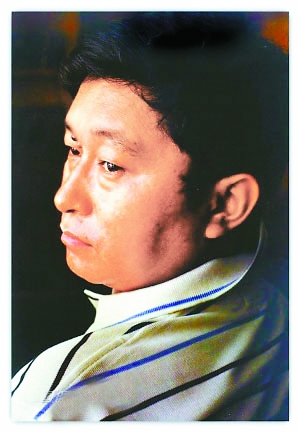Tibetan writers at London Book Fair
 0 Comment(s)
0 Comment(s) Print
Print E-mail Xinhua, April 19, 2012
E-mail Xinhua, April 19, 2012
Two Tibetan writers from China talked about their experience and writing at the ongoing London Book Fair on Tuesday to help people learn more about a real Tibet.
 |
|
Alai [File photo] |
Alai, who was born in southwestern Sichuan province in 1959, recalled the education he received as insufficient but helpful.
"I was in a village and every day I drove the sheep uphill before going to school," he said. In the afternoon, the students raised their hands to remind the teachers to dismiss class, so that they could bring the sheep back home.
In comparison, Cering Norbu, born in 1965, was lucky. He grew up in Lhasa and received bilingal education there.
The environment gave them inspiration.
Alai finished his story King Gesar, based on the Tibetan epic with the same name.
"It was the epic of the Tibetan people, just as the Greek mythology to Greece," he said.
Dubbed the Eastern Homer, the Epic of King Gesar, an epic poem from Tibet, is a piece of intangible cultural heritage that China has been trying hard to preserve.
"Even today, many storytellers are still telling this story in the villages or on the farms," he said.
However, Alai noted that while the Greek mythology became novels, movies and musicals, King Gesar remained less known. "It is time to retell it," he said.
This is a difficult task. On the one hand, the epic was extremely long and it was hard to choose which part for retelling. On the other hand, some part has became obscure over the centuries.
This prompted him to reflect on the culture.
Alai remembered going to the British Museum and seeing Tibetan culture represented by the religious stuff only. "As a Tibetan I felt uneasy," he said. "Our culture is far more than just temples and lamas."
Talking about the influence of Tibetan culture by modernization, Alai said "development is good, as a culture couldn't just live in museums."
His view was echoed by Cering Norbu. "This influence is not solely on Tibetan culture," he said. "It is why writers are important, as they should record the history of a nation."
Alai has a famous historical novel, the Dust Settles, which follows a family of Tibetan chieftains before the democratic reform in 1959. When asked if such topic was sensitive, he laughed and voiced his confidence.
"In fact, I am free to express my innermost thoughts in China and writing itself is a happy experience," he said.
While Cering Norbu is working on a new book, which tells the change of life among Tibetans after 1959.
"Nobody has written down completely the changes Tibet experienced during the past half a century," he said.
"We are enjoying religious freedom. Our lives have been greatly improved, particularly after the reform and opening-up. I want to tell the readers our true feelings," he said.
The three-day 2012 London Book Fair opened on Monday, with China being honored as the Market Focus country for the first time. Some 300 events were held during the book fair, and 57 leading Chinese writers participated in literary events with British writers and readers.






Go to Forum >>0 Comment(s)